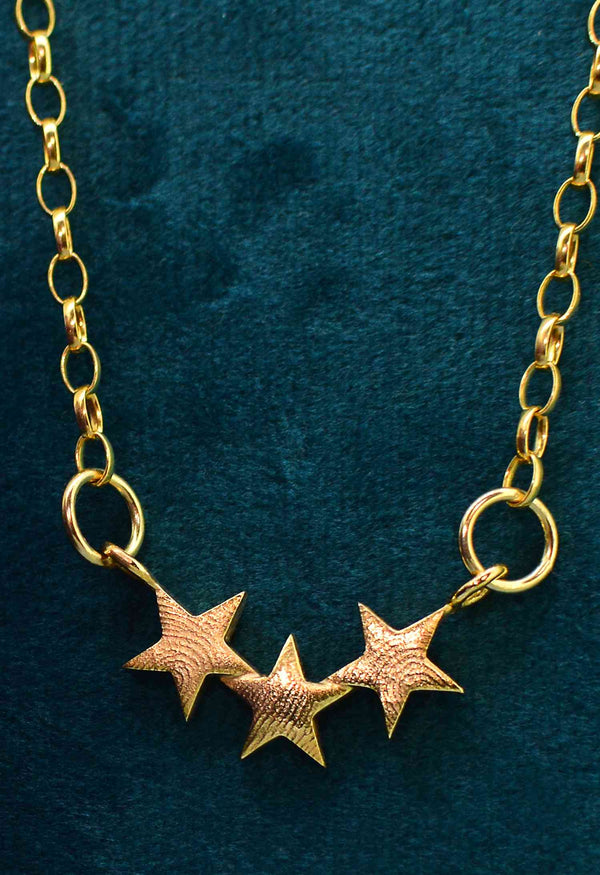Your Cart is Empty
~ Waiting List in Operation ~ Please Ask Before Ordering ~
~ Personalised jewellery to treasure forever ~
~ Waiting List in Operation ~ Please Ask Before Ordering ~
~ Personalised jewellery to treasure forever ~

What is Fairtrade gold, and is it really ethical?
February 16, 2018 3 min read
Right now, somewhere in the world, there’s a little boy covered in dirt, his hands sore, lowered into a cave. He’s picking away at stone, looking for a glimmer of gold. His life is very different to yours. He lives in rags and only knows work. He’s a child by our definition. But he’s lost in another world, working day and night to support his family.
Gold has been mined for thousands of years. But it’s only in the last hundred years that people have really started to question where the yellow metal in their jewellery comes from. It happened with diamonds - you might remember in 2000 the Kimberly Process was introduced, a resolution to block the sale of conflict diamonds.
The issue of ‘blood gold’ is lesser to the issue of ‘blood diamonds’ in scale, but nether-the-less there’s definitely something in it.
In 2016, Bloomberg ran a story highlighting the illegal gold mining operations in Columbia. The report goes that deep in the jungles of Colombia, there’s thousands of illegal mining operations going on under the control of Marxist guerrillas or drug traffickers. The gold that’s mined here turns up in smartphones and other electronics you use every day. Bet you didn’t have a clue the phone you’re holding might have blood gold in it, did you?
And it’s totally not your fault. Electronics manufacturers do not label where they get their precious metals from. So, you’re not to know. For what it’s worth, your phone contains gold, platinum, palladium and silver in very small quantities.
So, what about jewellery?
Things get better as you look to buy higher quantities of gold than that found in a phone, such as jewellery. You can now buy jewellery made from Fairtrade gold. You probably know Fairtrade from chocolate bars, coffee and bananas. But the Fairtrade Foundation covers much more than that. Their certification scheme for gold is the world’s first independent ethical certification system for the precious metal.
There are over 160 jewellers working with Fairtrade gold in the United Kingdom right now, which really isn’t very many. But, the numbers are growing. The issue is most jewellers have a life-long relationship with their suppliers. If they don’t trade in Fairtrade gold, it’s a case of throwing away a long-standing relationship for ethics.
A price worth paying, you’d say as a consumer. The business view is throwing away relationships for something very few consumers care about (most people don’t think twice about their gold) is not good business.
Right, so now you know Fairtrade gold exists. But is it really ethical to buy it?
Is Fairtrade gold ethical?
The real question is, is Fairtrade fair?
The Fairtrade scheme was setup to provide better prices, working conditions and sustainability for producers. The producers pay for their certification, but in return are guaranteed a minimum price for their produce.
Critics of the scheme say it prices out the poorest farmers and distorts the market. For instance, it doesn’t recognise the efforts made by local government.
Fairtrade says buying Fairtrade gold makes a real difference to the lives of miners, their families and communities. This is achieved (in theory) by these people being paid a fair price for their work and product. Prior to Fairtrade, these people may have been paid a much lower rate. They may not have been paid at all. So, the bottom line is while you can criticise the Fairtrade label, the poorest people in gold are better off from it.
To find out more about Fairtrade gold, check out the official web page.
Leave a comment
Comments will be approved before showing up.
Subscribe
Sign up to get the latest on sales, new releases and more …

Join the Club
WE'RE SO PLEASED TO SEE YOU!
Stay a while and look around.
While you're here, why not subscribe to our newsletter?We'll give you £20 off your first order, VIP access to new products, and access to our very special sample sales.We promise not to annoy you (honest).
